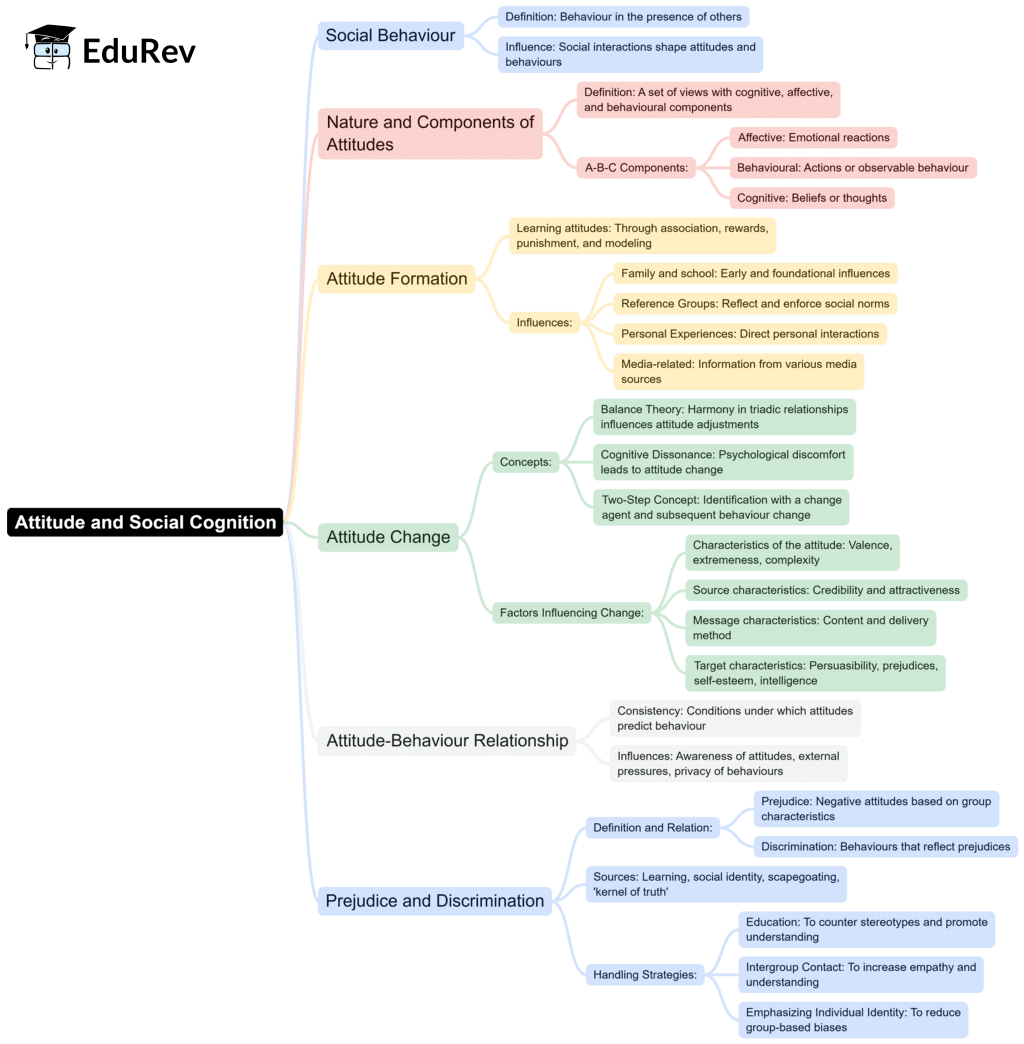Humanities/Arts Exam > Humanities/Arts Notes > Psychology Class 12 > Mind Map: Attitude and Social Cognition
Mind Map: Attitude and Social Cognition | Psychology Class 12 - Humanities/Arts PDF Download

The document Mind Map: Attitude and Social Cognition | Psychology Class 12 - Humanities/Arts is a part of the Humanities/Arts Course Psychology Class 12.
All you need of Humanities/Arts at this link: Humanities/Arts
|
25 videos|97 docs|24 tests
|
FAQs on Mind Map: Attitude and Social Cognition - Psychology Class 12 - Humanities/Arts
| 1. What is the relationship between attitude and social cognition? |  |
Ans. Attitude and social cognition are closely intertwined as attitudes influence how individuals perceive and interpret social information. Social cognition refers to the processes by which people think about and understand their social world, and attitudes can shape these perceptions, impacting decision-making and behavior in social contexts.
| 2. How do attitudes form and change in social contexts? |  |
Ans. Attitudes can form through various processes, including direct experience, socialization, and observational learning. They can change due to new information, persuasive communication, or through significant life experiences. Social contexts, such as group dynamics or cultural influences, also play a crucial role in shaping and altering attitudes.
| 3. What role do cognitive biases play in social cognition? |  |
Ans. Cognitive biases significantly influence social cognition by affecting how individuals process information and make judgments about others. Biases such as confirmation bias, halo effect, and stereotyping can lead to distorted perceptions and misinterpretations of social cues, which ultimately shape attitudes and behaviors.
| 4. How can understanding attitudes improve interpersonal communication? |  |
Ans. Understanding attitudes can enhance interpersonal communication by enabling individuals to recognize and address potential misunderstandings rooted in differing attitudes. By being aware of one's own attitudes and those of others, individuals can tailor their communication strategies, fostering empathy and reducing conflict in social interactions.
| 5. What methods are used to measure attitudes in social psychology? |  |
Ans. Attitudes in social psychology are often measured through various methods, including self-report surveys, implicit association tests, and observational techniques. Self-report surveys gauge explicit attitudes through questionnaires, while implicit association tests assess automatic associations, providing a more nuanced understanding of an individual's true attitudes.
Related Searches
















